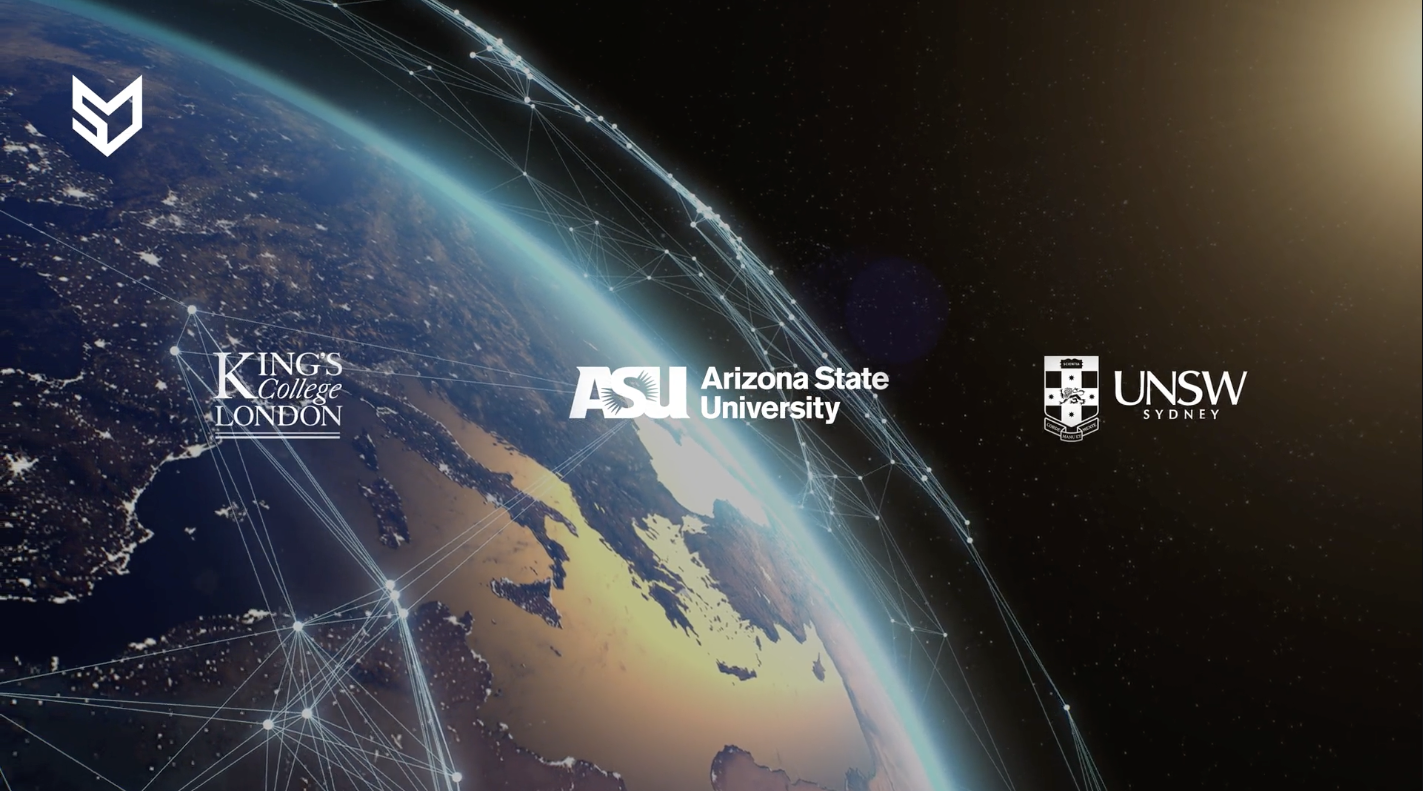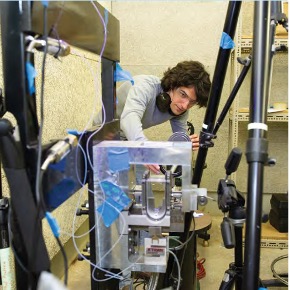Senior sustainability scientist at ASU, Professor Rimjhim Aggarwal, chats about why the greatest global challenges require a ‘systems approach’ and how cross-disciplinary collaboration brings out her inner humanist.
Your research and teaching lie at the interface between sustainability and international development. What led you here?
Growing up in India, I was always intrigued by the contrast between our glorious, cultural history and the current condition that is characterised by abject poverty and widespread malnutrition. I was fascinated by what it means to be ‘developed’ and chose to study economics in India before completing my PhD at Cornell University. As a student, I was taught to see international development as a straight path, with poor developing countries on one end, and western, industrialized countries on the other, yet the global challenge of sustainability has debunked this.
In what way?
Well, we now live in a world that is scarce in terms of resources, for example water, and resource-intensive economies are being forced to make significant changes. We now recognize that those ‘successful’ countries are not necessarily models for how the rest of the world should operate. There are no blueprints or models of best practice anymore, and the interesting part of my research and teaching is that we now have to create these on our own. Every country has to imagine for itself what it means to be developed, and where it wants to go in the future.
You advocate a ‘systems approach’ to tackling sustainability challenges. What exactly does this mean?
A systems approach to sustainability challenges means that we consider the interdependence of various technological, social, cultural, political and economic factors. For example, I am currently working on developing and implementing a more sustainable method of rice production, but it’s not just a question of technology. This project involves shifting from a flooded method to drip-irrigation, which could dramatically reduce the amount of water needed by farmers to grow rice, but it’s not a simple change. We have to think about the entire physical infrastructure involved, the financial incentives for the local farmers, and the way that water is allocated in the community. In addition to the technology, the law and the culture both need to be examined. Rice is so much a part of the way that people live in places like India, and the way festivals and rituals are organised, from marriage to when a child is born. If you want to change the way rice is produced, it will affect the society, the culture and the stories that are told in these communities. The technology is the easy part! One of the research projects I have been part of through the PLuS Alliance actually involves applying a systems approach to the UN Sustainable Development Goals, and exploring how we can think about these seventeen huge, aspirational goals as a multidisciplinary team.
How does being part of the PLuS Alliance support this ‘systems approach’?
Collaborating with colleagues at UNSW Sydney and King’s College London, particularly in the humanities, has opened up my eyes to parts of the system that I had never thought about before. As part of a second PLuS Alliance seed-funded research project, we have been working to foster meaningful and deep collaborations between humanists and sustainability scientists in three domains - knowledge co-production, new forms of engagement, and impact evaluation. This is in response to the fact that sustainability science has been dominated by physical scientists and engineers, yet it requires input from academics rooted in human values, ethics, cultures, aesthetics and imaginations to effectively make an impact. The diverse PLuS Alliance teams have helped me to consider sustainability challenges from a new perspective, such as thinking deeply about what is it that we are trying to sustain, what do we as humans care about, and what is the role of leadership in driving change. I tell people that it has brought out the ‘inner humanist’ in me! As a trained economist, I have now learned to ask, ‘what about the role of emotions?’ ‘Knowledge’ is one thing, but the real challenge is changing behavioral patterns and habits, and this is why the humanities is so important. Being part of the PLuS Alliance makes me optimistic about solving these problems and it impacts how we do research and train our graduates. We are encouraging them to explore beyond the rational and the logical.
What are the key values you are trying to instill in the next generation of researchers at the ASU School of Sustainability?
We are instilling in our graduates an understanding of the immense value of local community engagement. We are dispelling this myth that just because you receive a PhD, you can now tell the world what to do. Dismissing the importance of engaging with local communities has led to so many problems in international development and sustainability. To effect change as a researcher requires a lot of humility and authentic engagement and we need to listen to what people have to say. It can be a challenging process, but it is also where all the opportunities are. Innovations are increasingly coming from this approach, where we are working with communities to design solutions together and creating a sense of ownership. As part of a new initiative at ASU, colleagues and I will be team-teaching a programme on the ethics of engaging with local communities and we hope to instill an appreciation for being accountable as researchers. That doesn’t mean being shy and not taking risks, but we must be accountable for those risks over the long term (beyond the usual cycles of project funding). We are teaching the next generation these values so that they don’t make the same mistakes that we made earlier.
What are some projects in the pipeline that you are really excited about?
I have an ongoing project on the Food-Energy-Water Nexus, funded by the National Science Foundation, which I am really excited about. Beyond the intellectual curiosity, I am always thinking about what difference we can all make on the ground level. I recently received funding for a project that will use a resource efficient greenhouse design for urban gardening. We will be engaging our students in installing greenhouses in community and school gardens, and adapting it to their needs.
A curiosity with urban gardening is certainly on the rise. Why are projects like this important?
It’s a way that we can encourage people to think about how we grow food in an urban setting and get the next generation excited about sustainability, from Kindergarten to Grade 12 to beyond. Our diets follow habitual patterns and are difficult to change. But we can engage kids at an early age, when those habits are still forming. We can talk to them about healthy diets, and if we support them to grow their own food, they are connected to that food. There is research which shows that urban gardening can motivate those involved to at least try what they grow and eventually improve their diets. Maybe some kids have never tried a radish or asparagus, but now that they are growing them, they get excited about the idea! They work together with their peers and neighbours, and are even able to handle emotional stress better. King’s and UNSW both have interesting urban gardening initiatives as well, so I’m very much looking forward to connecting with colleagues on reimagining our urban spaces to meet our food security challenges and to build resilient communities.
It sounds like you have a lot of projects keeping you busy, but when you do get some spare time to relax in Phoenix, what do you like to do?
As you can imagine, it’s very hot here in the summer, but we do have this very early morning window, where it’s very quiet and much cooler, which I like to try and spend outdoors. I enjoy hiking, walking, and just being in nature on my own. Yoga, meditation and reading, those are my hobbies. I also find music a great way to connect with people, with nature, and myself. I used to play the Sitar when I lived in India, and one of my resolutions is to pick it up again. I have it with me here in the US! Professor Rimjhim Aggarwal is a Senior Sustainability Scientist at the Julie Ann Wrigley Global Institute of Sustainability and Associate Professor at ASU's School of Sustainability.


